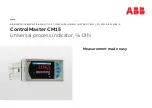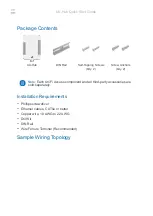
215
CHAPTER 13 SERIAL INTERFACE (UART0)
Preliminary User’s Manual U16035EJ1V0UM
13.2 Configuration of Serial Interface
The serial interface (UART0) consists of the following hardware.
Table 13-1. Configuration of Serial Interface (UART0)
Item
Configuration
Registers
Transmit shift register 0 (TXS0)
Receive shift register 0 (RX0)
Receive buffer register 0 (RXB0)
Control registers
Asynchronous serial interface mode register 0 (ASIM0)
Asynchronous serial interface status register 0 (ASIS0)
Baud rate generator control register 0 (BRGC0)
(1) Transmit shift register 0 (TXS0)
This is the register for setting transmit data. Data written to TXS0 is transmitted as serial data.
When the data length is set as 7 bits, bits 0 to 6 of the data written to TXS0 are transferred as transmit data.
Writing data to TXS0 starts the transmit operation.
TXS0 can be written by an 8-bit memory manipulation instruction. It cannot be read.
RESET input sets TXS0 to FFH.
Caution
Do not write to TXS0 during a transmit operation.
The same address is assigned to TXS0 and the receive buffer register 0 (RXB0). A read
operation reads values from RXB0.
(2) Receive shift register 0 (RX0)
This register converts serial data input via the RxD0 pin to parallel data. When one byte of data is received at
this register, the receive data is transferred to the receive buffer register 0 (RXB0).
RX0 cannot be manipulated directly by a program.
(3) Receive buffer register 0 (RXB0)
This register is used to hold receive data. When one byte of data is received, one byte of new receive data is
transferred from the receive shift register (RX0).
When the data length is set as 7 bits, receive data is sent to bits 0 to 6 of RXB0. In this case, the MSB of RXB0
always becomes 0.
RXB0 can be read by an 8-bit memory manipulation instruction. It cannot be written to.
RESET input sets RXB0 to FFH.
Caution
The same address is assigned to RXB0 and the transmit shift register 0 (TXS0). During a write
operation, values are written to TXS0.
(4) Transmit controller
The transmit controller controls transmit operations, such as adding a start bit, parity bit, and stop bit to data that
is written to the transmit shift register 0 (TXS0), based on the values set to the asynchronous serial interface
mode register 0 (ASIM0).
















































